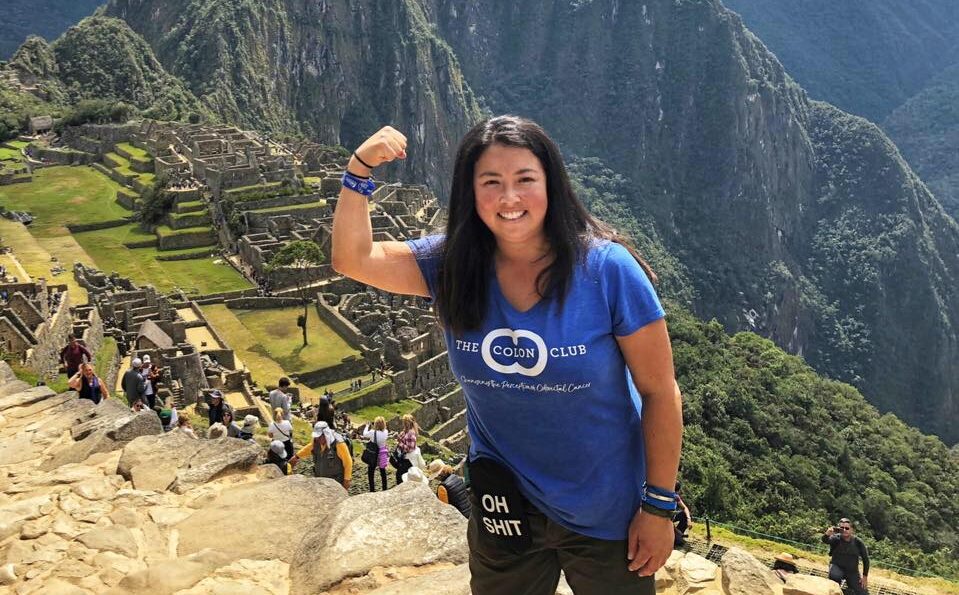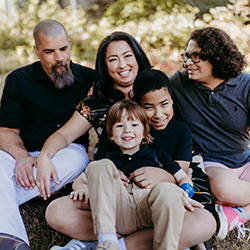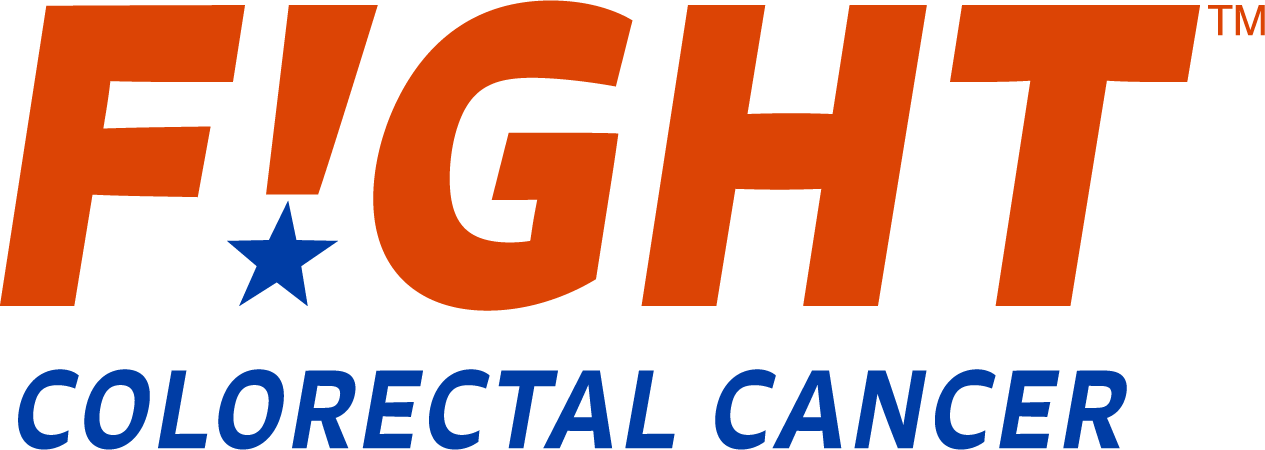
Julie Brown
Patient/Survivor
Rectal
Age at Diagnosis: 32
No one needs to fight alone; we are in this together. Share your journey: It may be the push and inspiration another warrior needs to keep on going.
I’ve had Crohn’s disease since I was 14 years old, so I was used to getting tests and colonoscopies every year, although I hadn’t had a colonoscopy for two years because of my pregnancy. I was used to the typical symptoms that might be associated with colorectal cancer. A few months after my second son was born, I started experiencing symptoms. The doctors and I thought it was just a regular Crohn’s flare-up. A couple of months later, when the inflammation was down, I was able to go in for a colonoscopy.
The doctors determined that I had stage IIIc colon cancer. I was 32 years old. It was two days before Thanksgiving.
I decided to get a permanent ileostomy as a result of my cancer. It was the most aggressive approach that would minimize the risk of recurrence. While discussing my treatment plans, my doctor recommended support groups. I attended some, but many people were in their 50s and 60s, so I felt pretty much alone. I had two young kids and I didn’t think anybody understood what I was dealing with, so I avoided finding community for about eight years.
When my third son was born, I decided I needed support through therapy, which I began. I also reached out to the colorectal cancer community to go through the full healing process. My therapist and friends recommended that I apply for the Colon Club, an organization that recognizes the importance of early-age onset (under 45 years old) colorectal cancer. The group wants to raise awareness that it is not ‘an old man’s’ disease.
I was selected by the group to be in their On the Rise Magazine, and I attended a photoshoot where I met a dozen other survivors and caregivers with similar stories as mine. It was the most amazing experience. It felt like a family, and the community understood the impact of having colorectal cancer on young patients like me. After that experience, I was pretty much hooked on advocacy. I started sharing my story and raising awareness, which led me to become an ambassador for Fight CRC. I wanted to be involved in speaking out and helping other young patients find community.
I recently had a recurrence: The cancer has metastasized to my liver. I am currently in treatment, but I remain positive, hoping that everything goes well and refusing to give up.
Colon Club Featured Survivor
Julie was featured in the 2020 On the Rise, a project of The Colon Club.


